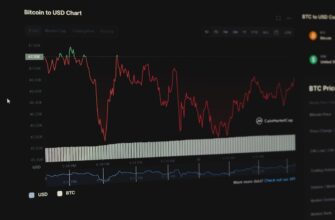- Introduction: Navigating Bitcoin Sales in India’s Regulatory Landscape
- Why Consider Selling Bitcoin Without KYC?
- Legal Status of Non-KYC Bitcoin Sales in India
- Methods to Sell Bitcoin Without KYC in India
- Critical Risks of Non-KYC Bitcoin Sales
- Safety Measures for Non-KYC Transactions
- KYC Alternatives: Compliant Selling in India
- FAQ: Selling Bitcoin Without KYC in India
- Is selling Bitcoin without KYC illegal in India?
- Can I use international exchanges to avoid KYC?
- What’s the tax implication for non-KYC Bitcoin sales?
- Are there transaction limits for non-KYC sales?
- How do I verify a P2P buyer's reliability?
- Can I sell Bitcoin for cash anonymously?
- Conclusion: Prioritize Compliance and Security
Introduction: Navigating Bitcoin Sales in India’s Regulatory Landscape
Selling Bitcoin without KYC (Know Your Customer) verification in India attracts significant interest among crypto users seeking privacy or avoiding bureaucratic hurdles. With India’s strict crypto regulations mandating KYC on exchanges, many explore alternative methods. This guide examines practical approaches, legal implications, and critical risks—emphasizing that compliance remains paramount under Indian law.
Why Consider Selling Bitcoin Without KYC?
Users explore non-KYC Bitcoin sales for several reasons:
- Privacy Concerns: Avoiding identity linkage to transactions.
- Accessibility: Bypassing documentation barriers for unbanked users.
- Speed: Skipping lengthy verification processes.
- Decentralization Principles: Aligning with crypto’s original ethos of anonymity.
However, India’s regulatory framework requires caution. The Prevention of Money Laundering Act (PMLA) mandates KYC for Virtual Digital Asset (VDA) service providers, making non-compliant methods legally ambiguous.
Legal Status of Non-KYC Bitcoin Sales in India
Indian regulations enforce strict KYC norms:
- Exchanges must report transactions to the Financial Intelligence Unit (FIU).
- Taxes apply: 30% on profits + 1% TDS under Section 194S.
- Non-KYC peer-to-peer (P2P) trades aren’t explicitly illegal but risk violating PMLA if used for illicit activities.
The Reserve Bank of India (RBI) maintains skepticism toward crypto, though outright bans don’t target individual P2P transactions. Always consult legal experts before proceeding.
Methods to Sell Bitcoin Without KYC in India
While limited, these approaches exist with significant caveats:
- Decentralized Exchanges (DEXs): Platforms like Uniswap or PancakeSwap allow wallet-to-wallet swaps for stablecoins (e.g., USDT), which can later be sold via P2P. No KYC, but technical complexity is high.
- P2P Marketplaces: LocalBitcoins or Binance P2P (using “non-KYC” buyers) facilitate direct deals. Note: Binance requires KYC for INR withdrawals.
- OTC (Over-the-Counter) Desks: Private brokers may handle large transactions offline. Verify legitimacy to avoid scams.
- Crypto ATMs: Rare in India, but a few machines allow anonymous sales under transaction limits.
Critical Risks of Non-KYC Bitcoin Sales
Bypassing KYC invites substantial dangers:
- Scams & Fraud: No recourse for stolen funds in unregulated deals.
- Legal Penalties: Tax evasion can lead to 100% penalty + prosecution under the Income Tax Act.
- Money Laundering Charges: PMLA violations carry 3–7 years imprisonment.
- Price Manipulation: Buyers may demand steep discounts (10–25% below market rate).
Safety Measures for Non-KYC Transactions
If pursuing non-KYC options:
- Use escrow services on P2P platforms to hold funds until confirmation.
- Conduct small test transactions first.
- Meet in secure public locations for cash deals.
- Document all transactions for tax compliance.
KYC Alternatives: Compliant Selling in India
Prioritize these secure, legal channels:
- Registered Exchanges: WazirX, CoinDCX, and ZebPay offer INR withdrawals with full KYC. TDS is auto-deducted.
- Bank Transfers: Convert BTC to INR via exchanges—safer and auditable.
- Crypto-Friendly Banks: Some neo-banks like Jupiter allow seamless crypto-fiat conversions post-KYC.
FAQ: Selling Bitcoin Without KYC in India
Is selling Bitcoin without KYC illegal in India?
Not explicitly illegal for individuals, but platforms facilitating trades must enforce KYC. Tax evasion or money laundering through such sales is punishable by law.
Can I use international exchanges to avoid KYC?
Most global exchanges (e.g., Kraken, Bybit) require KYC for fiat withdrawals. Using them with VPNs violates terms of service and may trigger account freezes.
What’s the tax implication for non-KYC Bitcoin sales?
All crypto profits are taxable at 30% + 1% TDS, regardless of KYC status. Failure to declare income risks penalties up to 200% of evaded tax.
Are there transaction limits for non-KYC sales?
Informal cash deals often cap at ₹50,000–₹2 lakhs per transaction to avoid scrutiny. Exceeding limits may trigger bank reporting under PMLA.
How do I verify a P2P buyer's reliability?
Check trade history, user ratings, and social proof. Avoid deals demanding upfront crypto release or unusual payment methods (e.g., gift cards).
Can I sell Bitcoin for cash anonymously?
Possible via in-person meetings, but carries high risk of theft or counterfeit currency. Always meet in daylight at crowded venues.
Conclusion: Prioritize Compliance and Security
While selling Bitcoin without KYC in India is technically feasible through P2P or DEXs, the legal and financial risks outweigh perceived benefits. Regulatory trends point toward stricter enforcement, making KYC-compliant exchanges the safest path. For transparency and asset protection, always declare crypto income and use authorized platforms—your financial security isn’t worth compromising.








